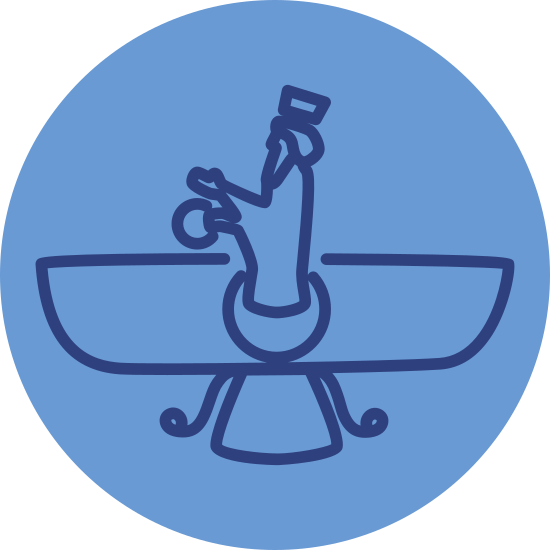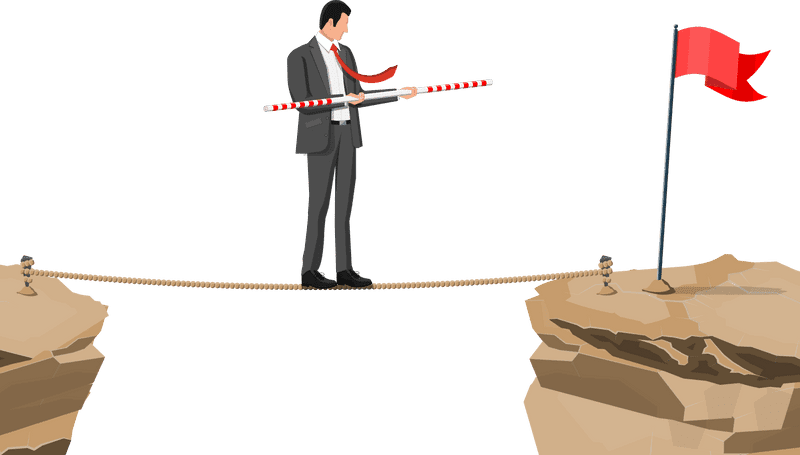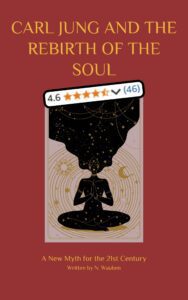Table of Contents
About this Series
In this series I attempt to make an in-depth analysis of Thus Spoke Zarathustra, written by Friedrich Nietzsche. I believe that Nietzsche is one of the most misinterpreted and misunderstood authors to have ever existed. This is a shame because, in my opinion, he was also one of the most original thinkers of his time, and many of his ideas are still relevant today.
Introduction
Thus Spoke Zarathustra is one of the most interesting books ever written. If you have never read Nietzsche before, Thus Spoke Zarathustra is a great place to start. Most of Nietzsche’s major ideas are discussed in Thus Spoke Zarathustra, such as the eternal recurrence, the death of God, Nietzsche’s opinion on ‘tarantulas’, which we have discussed in part 1, and the society of ‘the last man’, which will be discussed in this part.
The books’ main story line is relatively easy to follow which makes it slightly easier to read, Nietzsche’s ideas, however, might be more difficult to understand, and it has taken me a long while to finally understand them, if only to a small degree. In Thus Spoke Zarathustra we follow the adventures of Zarathustra, a character loosely inspired by the ancient prophet Zoroaster. Through the character of Zarathustra Nietzsche introduces some of his most important ideas to the reader. You can find Thus Spoke Zarathustra here on amazon https://amzn.to/3atT3Tt.
Summary of Part 1 and introduction to part 2
According to Nietzsche good and evil are relative concepts. He argued that every individual should define these values for themselves. As we have seen in part 1 Nietzsche, in relation to these concepts, warned us of the ‘tarantulas’.
Nietzsche indicated that tarantulas are individuals or groups of people that try to impose their idea of good and evil upon others and society as a whole. However, as argued by Nietzsche, these tarantulas do not impose their idea of good and evil out of love for mankind, instead they do so out of jealousy and vengeance: “’Vengeance will we use, and insult, against all who are not like us’ – thus do the tarantula-hearts pledge themselves. ‘And “Will to Equality” – that itself shall henceforth be the name of virtue; and against all that hath power will we raise and outcry!’” (p.97) Nietzsche believed that these Tarantulas only want to acquire more power, and the values that they attempt to impose are used as a source for power.
In this second part on Thus Spoke Zarathustra we will discuss a topic that is loosely related to the discussion on the tarantulas. Tarantulas want to control everything, they want everyone to be equal, everything to be arranged. According to Nietzsche, besides the tarantulas, the state is also promoting this development, a development which, as observed by Nietzsche, can be extremely dangerous and irreversible, it can lead to the society of the last man.

The Overman
Throughout many of his books Nietzsche warned humanity of a certain form of complacency. According to Nietzsche it should always be man’s aim to better him or herself, by doing so man would eventually evolve into the ‘overman’ (Übermensch, a term sadly misused in the past). This overman would be able to define his or her own morality, he or she would be ‘beyond good and evil’.
Nietzsche, however, believed that man, instead of developing into the overman, was developing in the direction of ‘the last man’. Nietzsche argued that “Man is a rope stretched between the animal and the superman – a rope over an abyss.” (p.8) If we would take a wrong step we would fall into the abyss. The abyss of the last man.
The Last Man and the Importance of Chaos
In this abyss of the last man progress would be almost impossible: “Alas there cometh the time when man will no longer launch the arow of his longing beyond man – and the string of his bow will have unlearned to whizz!” (P.10) In this abyss man thinks that happiness has been discovered. However, according to Nietzsche life might then have become too ‘easy’, too structured, and too organized. Nietzsche believed, however, that man should still have chaos in themselves: “I tell you: one must still have chaos in one, to give birth to a dancing star. I tell you: ye have still chaos in you. (p. 10)// Ich sage euch: man muss noch Chaos in sich haben, um einen tanzenden Stern gebären zu können. Ich sage euch: ihr habt noch Chaos in euch” (quote also in Nietzsche’s native language, it sounds a bit more powerful 😊)
In the society of the last man chaos would be impossible and therefore nobody would be able to give birth to any dancing stars: “There cometh the time when man will no longer give birth to any star. Alas! There cometh the time of the most despicable man, who can no longer despise himself. Lo! I show you the last man.” (Ibid)
This last man will have done a few things, according to Nietzsche. For example, they would only live in the most hospitable regions of the planet, because they cannot stand the cold. They would not want to be rich, poor, powerful, or weak, because all are too burdensome. They would all be equal, and anyone with a different opinion would be considered insane or dangerous. It is also in this sense that tarantulas can be seen as a force that is pushing us towards the abyss of the last man.
According to the last man, this state of order, peace and equality would be true happiness: “The earth hath then become small, and on it there hoppeth the last man who maketh everything small. His species is ineradicable like that of the ground-flea; the last man liveth longest. ‘We have discovered happiness,’say the last men, an blink thereby.” (Ibid)
This is not to say that Nietzsche was entirely opposed to such a society of order and equality. However, a society that would not at the same time also promote creativity and originality i.e. chaos, would be extremely dangerous, according to Nietzsche, because it would prevent man from evolving into the overman. If Nietzsche were to see how we live in the 21th century, do you think he would consider us to be the last man’?
The Role of the State
Nietzsche was also strongly opposed to the society of the last man because this society, besides being an obstruction to creativity and originality, would be imposed upon us by the state. Nietzsche believed that the state would play an important role in the development towards the last man.
Nietzsche called the state ‘the new idol’, the old idol being God, who man has killed, according to Nietzsche (which is an interesting topic for another part on Thus Spoke Zarathustra). This new idol would serve to protect the ‘happiness’ of the last man: “Weary ye became of the conflict, and now your weariness serveth the new idol! […] Everything will it give you, if ye worship it, the new idol; thus it purchaseth the lustre of your virtue, and the glance of your proud eyes.” (p. 46)
Nietzsche, as you will see, was not a great proponent of the state: “A state is called the coldest of all cold monsters. Coldly lieth it also, and this lie creepeth from its mouth: ‘I, the state, am the people.’” (p.45) Nietzsche argued that the state did not represent the people, instead it entrapped people: “Destroyers are they who lay snares for many, and call it the state; they hang a sword and a hundred cravings over them. Where there is still a people, there the state is not understood, but hated as the evil eye, and as sin against laws and customs.” (Ibid)
As you may have noticed Nietzsche strongly opposed any entity that would prevent the individual from developing him or herself into the best version of him or herself. In part 1 the tarantulas were criticized for this reason and in this part the last man and the state are criticized for the same reason.
Nietzsche was truly concerned about these developments because they seem to benefit mankind at first, however, they would create a false sense of happiness and security, making them even more dangerous: “The state I call it, where all are poison-drinkers, the good and the bad; the state, where all lose themselves, the good and the bad, the state, where the slow suicide of all – is called ‘life’” (p.46)
Everyone would be poison-drinkers because everyone would be poisoned to such an extent that they would all aim for the wrong goals that are promoted by the state; power and wealth: “Just see these superfluous ones! Wealth they acquire and become poorer thereby. Power they seek for, and above all the lever of power, much money – these important ones.” (Ibid) During this quest for money and power all these individuals would be struggling against each other, however, according to Nietzsche, they would all be unable to surface from the aforementioned abyss: “See them clamber, these nimble apes! They clamber over one another, and thus scuffle into the mud and the abyss. Towards the throne they all strive; it is their madness – as if happiness sat on the throne! Ofttimes sitteth filth on the throne – and oftimes also the throne on filth.” (Ibid)

Emerging from the Abyss
I think that we can all agree that many of the characteristics of the society of the last man, as described by Nietzsche, can also be found in our current society. According to Nietzsche man tend to favour the society of the last man because of the ease of the life of the last man. Even when, in Thus Spoke Zarathustra, Zarathustra warned a crowd of the coming of the last man, the crowd, unexpectedly begged for Zarathustra to show them the way to the last man: “Give us this last man, O Zarathustra, they called out. Make us into these last men!” (p.11)
Perhaps, because of this predilection for the life of the last man, combined with the tendency of the state to promote such a life, the development of a society fully controlled by the last man is inevitable. Nietzsche, however, did provide those who wanted to escape from such a society some advice. According to Nietzsche they should, first remove themselves from such a society: “My brethren, will ye suffocate in the fumes of their maws and appetites! Better break the windows and jump into the open air!” (p.46) They could remove themselves in a literal sense “Open still remained the earth for great souls. Empty are still many sites for the lone ones and twain ones, around which floateth the odour of tranquil seas.” (p.47) Or they could decide not to partake in the struggle for wealth and power advocated by society: “Verily, he who possesseth little is so much the less possessed: blessed be moderate poverty! […] There, where the state ceaseth – pray look thither, my brethren! Do ye not see it, the rainbow and the bridges of the Superman?” (Ibid)
Conclusions
Throughout this post we have discussed some rather confronting remarks made by Nietzsche. Nietzsche warned us against the abyss of the last man, a society in which creativity, originality and different opinions would be discouraged. It is definitely possible to see a connection between the society of the last man and our current society.
The state, the tarantulas and perhaps most of society are encouraging a society like that of the last man. I think it is important for us to be aware of these ideas and warnings of Nietzsche so that we do not give up our individuality overnight. We should not forget to be original and authentic. We should not forget to still have chaos in us!

